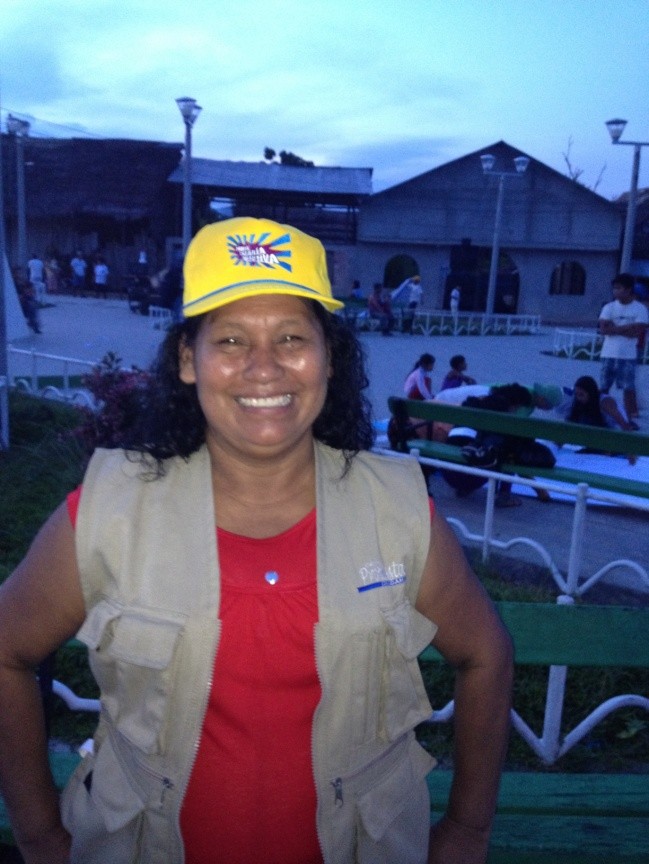
The citizens of Nauta, a town in the Peruvian Amazon about two hours south of Iquitos, suffer from high rates of poverty and malnutrition and their economic opportunities are limited. Traditionally, Nauta’s women were absent from political forums.
That is, until a few years ago, when Maria Tereza Sangama, a mother and community activist, and her fellow Nautinas decided to play a greater role in addressing issues such as domestic violence, trafficking in persons, and childhood malnutrition.
“We didn’t know our rights,” says Sangama. “We could not make a formal complaint about anything because we did not know the law. Then USAID supported us by opening up our eyes to our ability to demand our rights and justice. More than anything, they strengthened our self-esteem.”
Sangama is now the president and a founding member of the Association of the Nautinas, one of the 22 “vigilance committees” that received training in government accountability and citizen oversight by the USAID-supported consortium of Peruvian civil society organizations, Grupo Propuesta Ciudadana. Each committee is comprised of social leaders like Sangama who have an interest in overseeing how their government is using public resources.
From 2010 to 2012, the Nautinas learned about negotiation, participatory budgeting, access to public information, and citizen monitoring of public programs. With guidance, Nauta’s vigilance committee monitored the local government’s management of the national free milk distribution program, “vaso de leche.” Using oversight skills, the committee reviewed the regulations that govern the program, a critical effort in the fight against malnutrition.
They discovered that, under the legislation, their children had a right to 30 days’ worth of milk, as opposed to the 21 they were receiving. When the committee publicized this fact, the municipal government denounced Sangama, attempting to undermine her credibility. In response, 1,500 women from Nauta mounted a peaceful demonstration to demand their rights, marching to the Mayor’s Office with milk bottles in their hands.
This was the first time that women in this area had ever publicly demonstrated for anything—and it paid off. The municipality agreed to increase the milk distribution.
Initially, the men of Nauta challenged these changes because they did not want women to be away from the house or to “neglect” their domestic responsibilities. However, civic education, with a particular focus on women, can be a powerful agent for change. Now, Sangama points to her husband as an example, explaining that he is now a strong ally of her efforts to influence the authorities and address the concerns of local women.
“Women united are more powerful, they can do more if they work together,” says Sangama, echoing the Nautinas’ communications campaign slogan, “Purita Energía Collectiva!” or “Pure Collective Energy!”
USAID’s ProDecentralization III Project, which runs from October 2012 to October 2017, is designed to improve decentralized management of service delivery for marginalized populations in target regions.







Comment
Make a general inquiry or suggest an improvement.